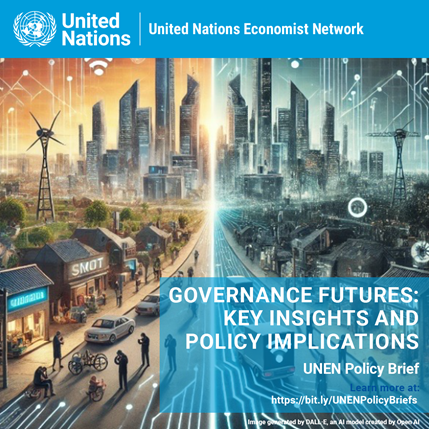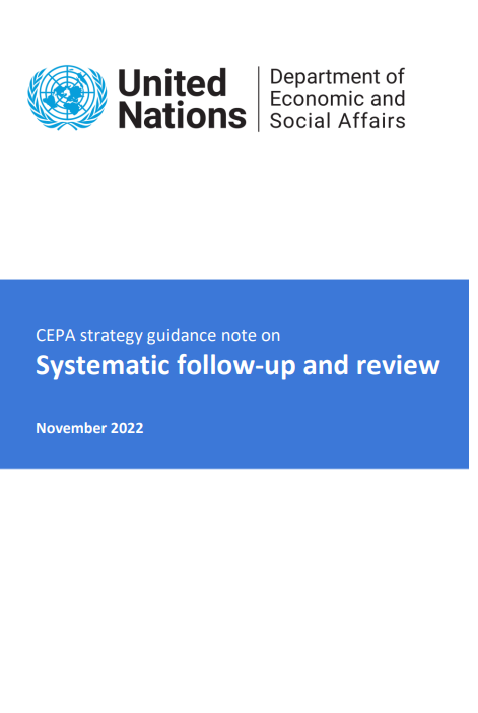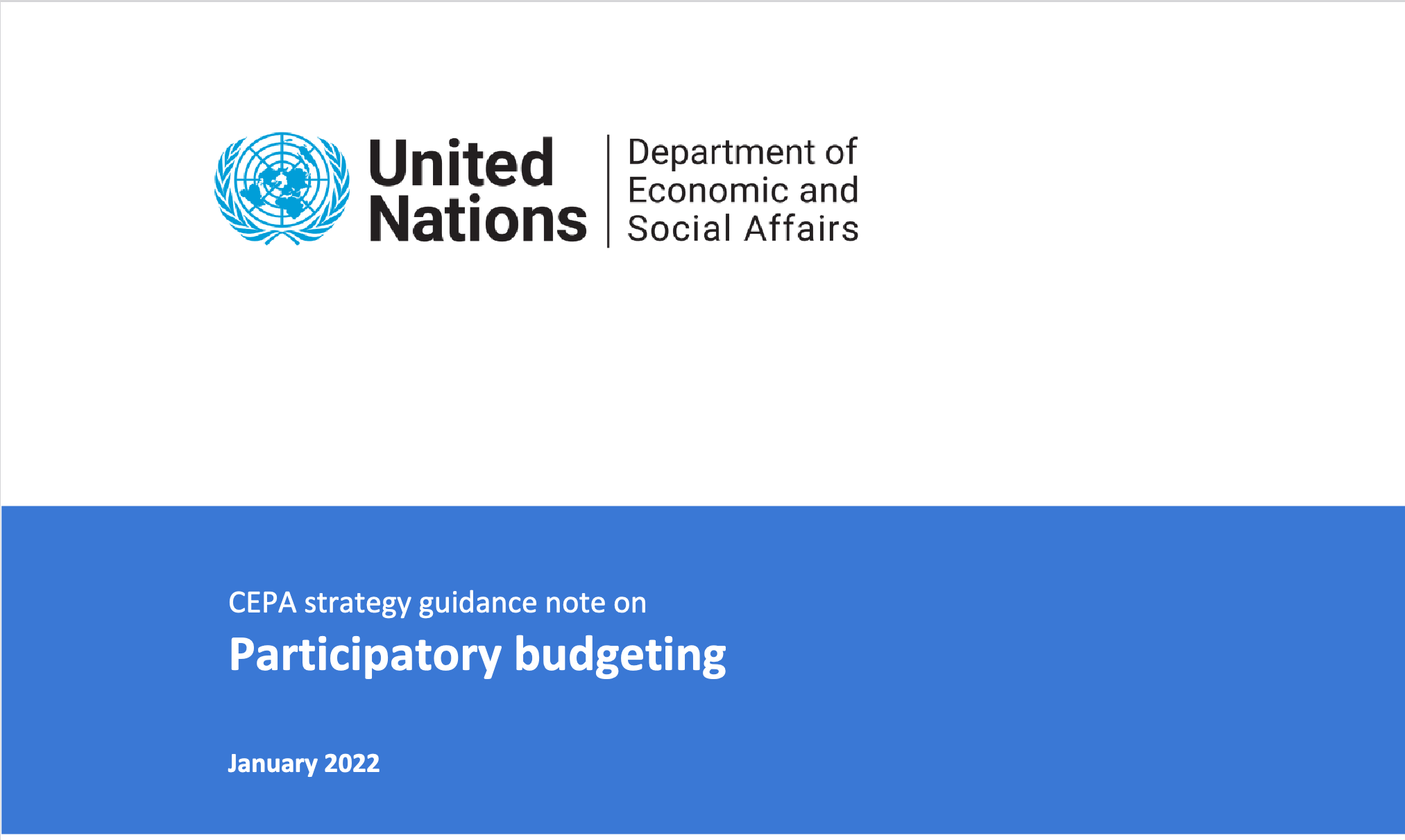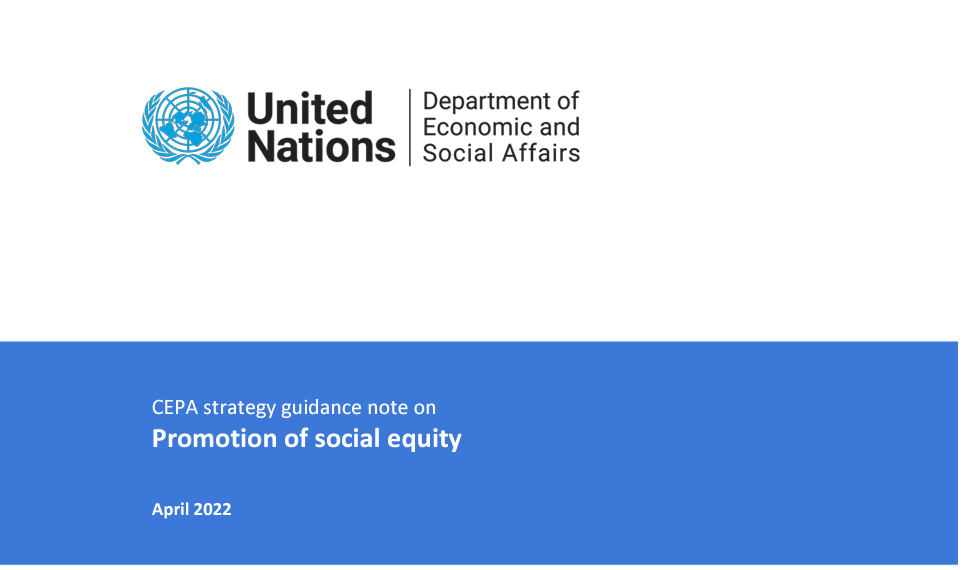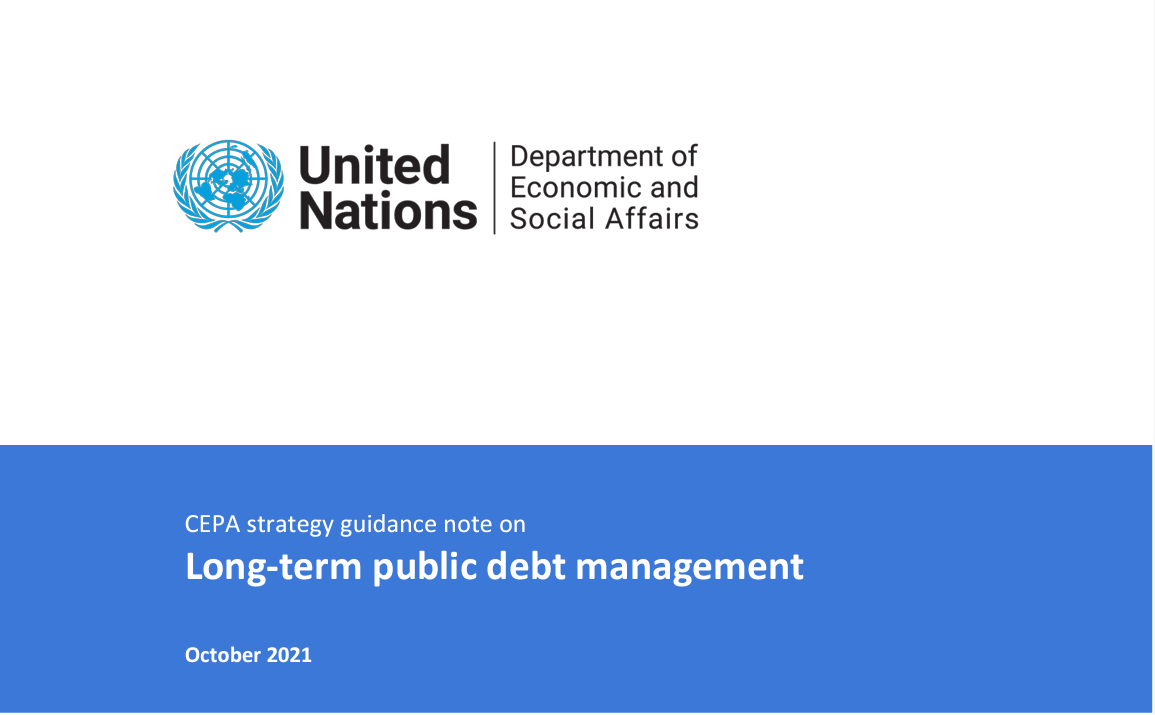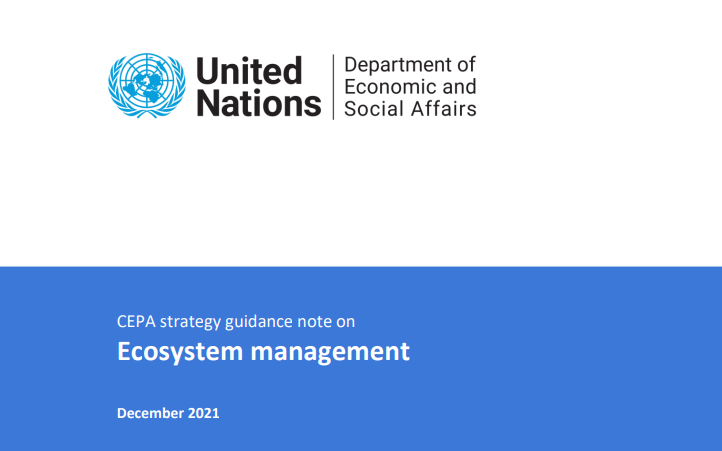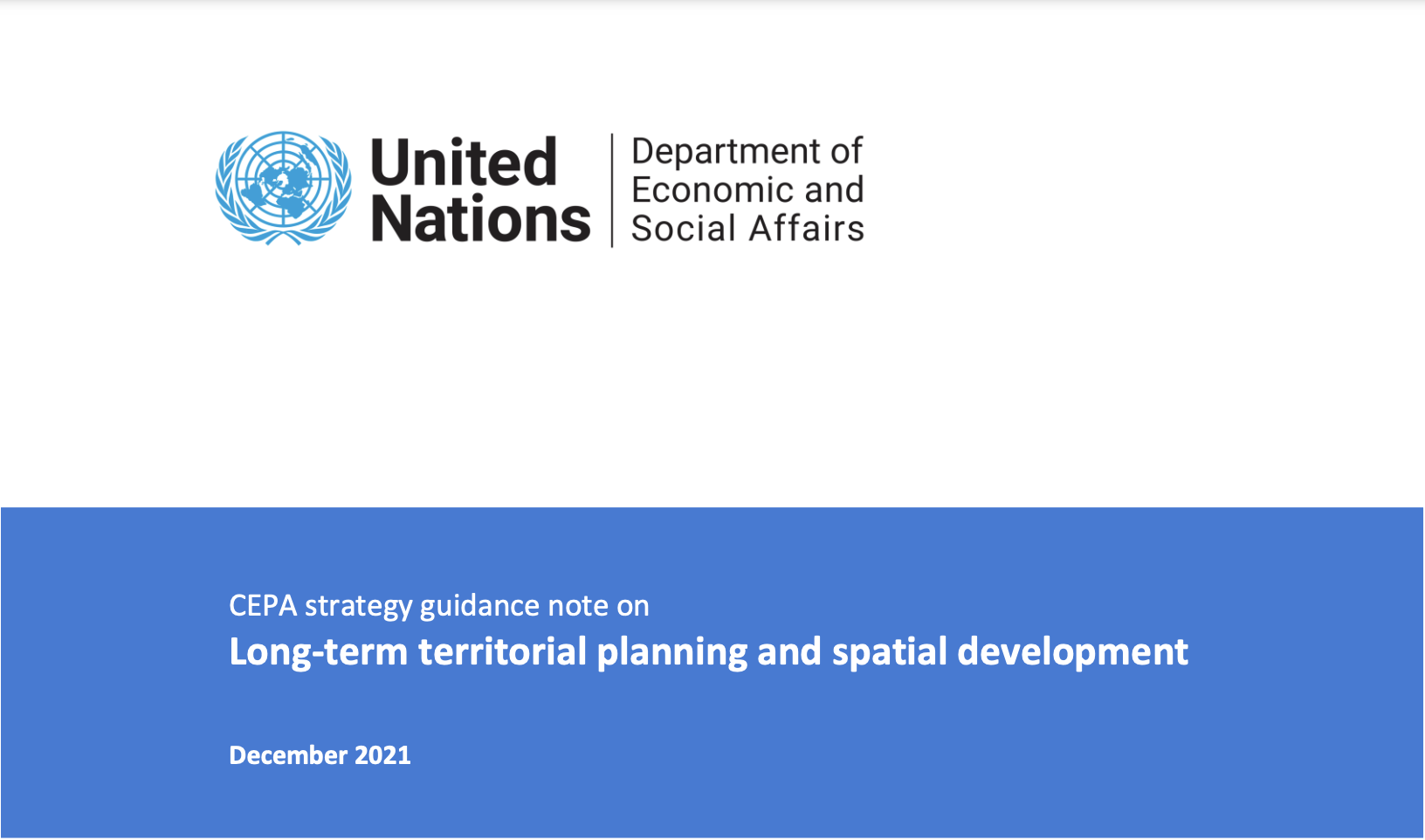| Publications | Policy Briefs | Public Institutions
UNEN Futures and Foresight Policy Brief: GOVERNANCE FUTURES
The UN Economist Network has released a new Futures and Foresight Policy Brief on Governance Futures: Key Insights and Policy Implications. This Policy Brief examines the limitations of current governance systems and proposes alternative models…
| Policy Briefs
UN DESA Policy Brief No. 157: How Can Governments Strengthen Their Relationships with Society to Meet the Sustainable Development Goals? Lessons from the COVID-19 Pandemic
With less than seven years left to the 2030 deadline, progress towards the Sustainable Development Goals (SDGs) has been limited. But, at the SDG Summit in September 2023, Member States of the United Nations committed to bold, ambitious, accelerated…
| Policy Briefs | Digital Government
UN DESA Policy Brief No. 149: Promoting Youth Participation in Decision-Making and Public Service Delivery through Harnessing Digital Technologies
Key messagesHarnessing digital technologies can greatly support public institutions in promoting effective youth engagement and participation in policy processes. Digital technologies can play an instrumental role in youth engagement and…
| CEPA Strategy Guidance Notes | Principles of Effective Governance
CEPA strategy guidance note on systematic follow-up and review
UN DESA's work is supported by a growing series of strategy guidance notes on the many facets of effective governance for sustainable development which embody the knowledge and experience of hundreds of committed expert practitioners and academics…
| Policy Briefs | Public Institutions
UN DESA Policy Brief No. 136: Promoting non-discrimination in public administration: some entry points
Promoting non-discrimination in public administration: some entry points
Key messages
Public administration can both serve as a vehicle for discrimination and provide channels to address it.
Research is needed, in particular from developing…
| CEPA Strategy Guidance Notes | Principles of Effective Governance
CEPA strategy guidance note on participatory budgeting
Participatory budgeting (PB) broadly refers to the many ways in which the general public is able to interact directly with government in the design and implementation of budgetary and…
| CEPA Strategy Guidance Notes | Principles of Effective Governance
CEPA strategy guidance note on promotion of social equity
The promotion of social equity is one of the strategies for leaving no one behind, and can be understood as fairness, justice and greater equality for all in society. Achieving equity relies on an active commitment to these aims through the…
| CEPA Strategy Guidance Notes | Principles of Effective Governance
CEPA strategy guidance note on long-term public debt management
This guidance note discusses the role of long-term public debt management as a strategy to promote sustainable development and intergenerational equity within the context of the 2030 Agenda.
| Policy Briefs | Digital Government
UN/DESA Policy Brief #123: Sandboxing and Experimenting Digital Technologies for Sustainable Development
From innovation hubs and policy experiments to regulatory sandboxes
Digital technologies carry a promise to fast track sustainable development by supporting innovative, forwarding-looking policies and digital government solutions. There are,…
| CEPA Strategy Guidance Notes | Principles of Effective Governance
CEPA strategy guidance note on ecosystem management
Ecosystem management involves using ecological knowledge about a particular ecosystem’s structure and function to achieve a desired set of objectives. By setting and working toward appropriate objectives that are grounded in sustainability,…
| CEPA Strategy Guidance Notes | Principles of Effective Governance
CEPA strategy guidance note on long-term territotial planning and spatial development
In reading this guidance note, individuals in government ministries and agencies who are less familiar with the topic will be able to understand the fundamentals. Those who have perhaps taken initial steps in this area with limited follow-through or…
| CEPA Strategy Guidance Notes | Principles of Effective Governance
CEPA strategy guidance note on fiscal and budget transparency
Fiscal transparency provides oversight institutions including parliaments, supreme audit institutions, and the public with the information they need to hold governments accountable in their management and use of public resources.
 Bienvenue aux Nations Unies
Bienvenue aux Nations Unies
